About
Torch Ministries (Mashaal Ministries in Farsi) was founded by Rev. Amir S and his wife Rashin (the daughter of martyred Rev. Hossein Soodmand). It is based on a vision God gave Rev. Amir about 25 years ago for the salvation, restoration and mobilisation of His people. It is also based on the living legacy of a flaming torch passed on to Rashin by the martyred Rev. Hossein Soodmand to carry on this mission for the kingdom of God.
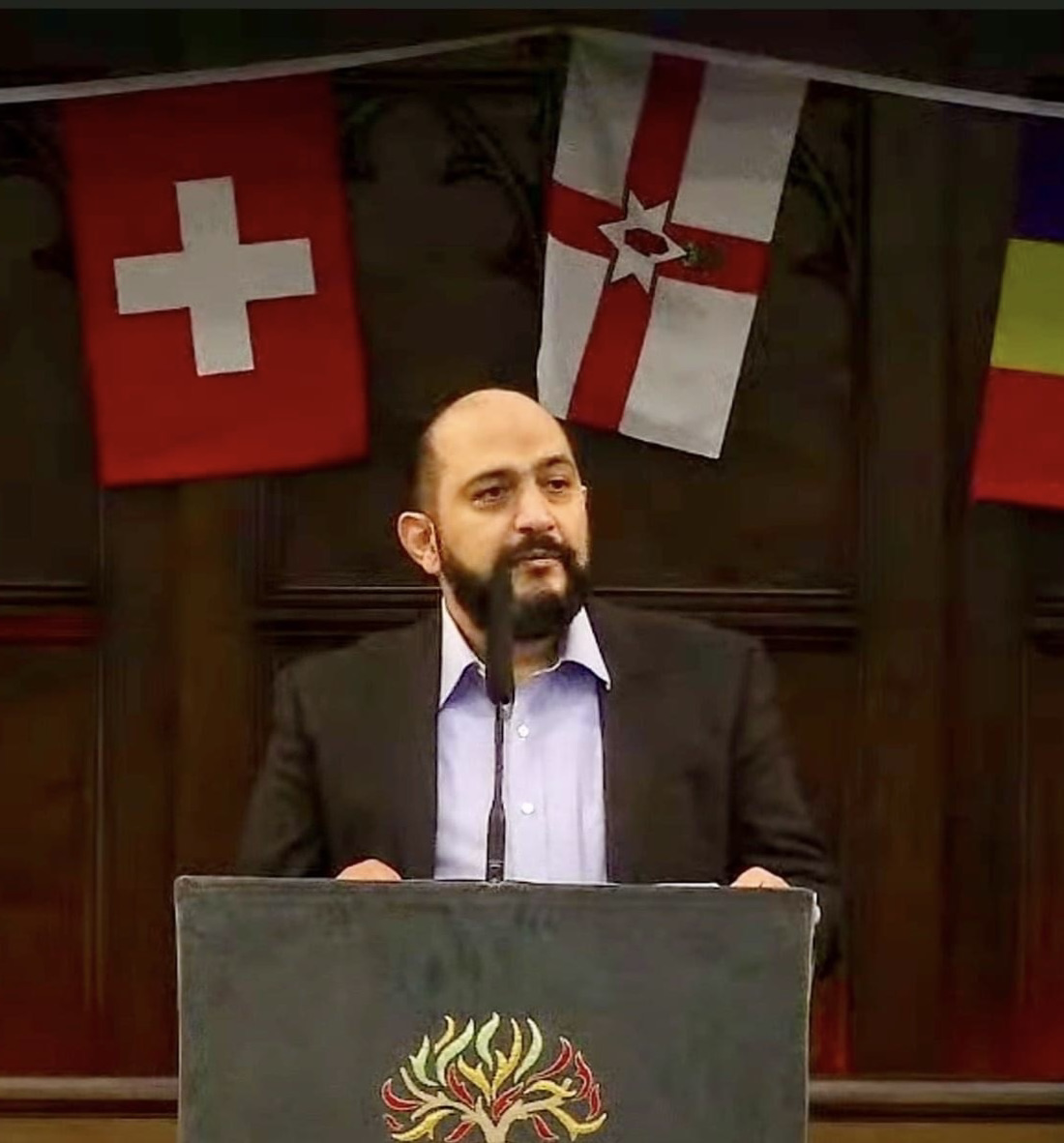
Rev. Amir S. Bazmjou is an ordained minister and has been involved in various types of training, preaching and teaching ministry within Persian communities over the past 26 years. He has been involved with organising international mission & outreach with Operation Mobilisation (OM). For more than 15 years, he has been involved in pastoral ministry at London’s Iranian Christian Fellowship (ICF) and in detention centre chaplaincy ministry at Heathrow IRC. He has been a lecturer in Religious Studies at Spurgeon’s College and other Theological College in London. He was part of the translation and editing team of the “Application Bible Commentary” for Farsi speakers.
He holds a Diploma (GDip) in Bible and religious studies from the U.S, a BA Honours degree in Christian Theology from the University of Manchester (Spurgeon’s College-London) and a Master of Philosophy (MPhil) in Religious Studies & Christian Theology as well currently being a PhD candidate/researcher in the same field (Religious Studies & Christian Theology) at the Oxford Centre for Mission Studies based in Oxford.
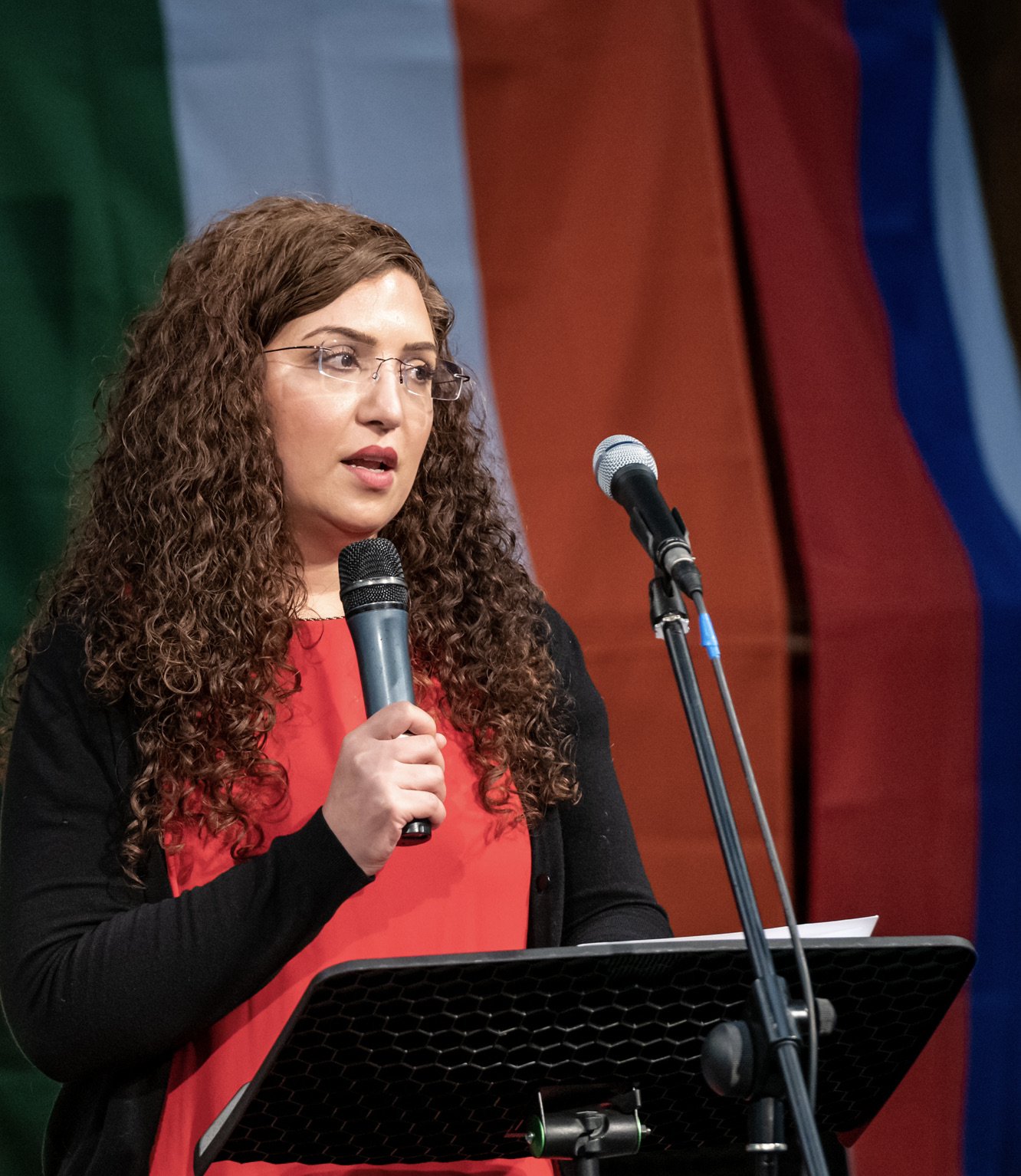
Rashin Soodmand came to know Jesus as a young child through the example of her father, the Rev. Hussein Soodmand, and her mother. When she was just thirteen years old her father was martyred for his Christian faith and ministry. After such a tragedy, “I could have become full of self-pity, but in a strange way my father’s martyrdom strengthened my faith, as I knew he had died as a soldier in God’s army. I am proud he chose Christ”. After finishing secondary school, Rashin felt strongly God calling her in another direction – into full time ministry. She wrote a letter to God, promising to serve Him as her Father had done. 28 years have passed since she dedicated that letter to God and during these years, God has led her faithfully step by step in His service and has showed her His plans to this stage.
Over 26 years Rashin has been involved in various types of a preaching and teaching ministry for women within Persian communities. She has been involved with her husband Amir with organising international mission outreach with Operation Mobilisation (OM). For ten years, Rashin was involved in producing satellite TV Bible teaching programmes for Persian women called “Women’s World” and has organised and taught at many women’s conferences. She is author of a Bible Study book for Persian women called “Joyful Women” and she was part of the translation and editing team of the “Application Bible Commentary” for Farsi speakers. She has also served as a Christian counsellor and pastoral ministry in many different settings.
Rashin holds a BA and postgraduate studies in Christian Theology, and a BA Honours in Christian Counselling from Waverley Abbey College (The University of Roehampton-London). She also holds a full MA in Counselling & Psychotherapy from the UK. She is a member of BACP-UK (British Association for Counselling and Psychotherapy).
Martyr Reverend Hossein Soodmand’s Story
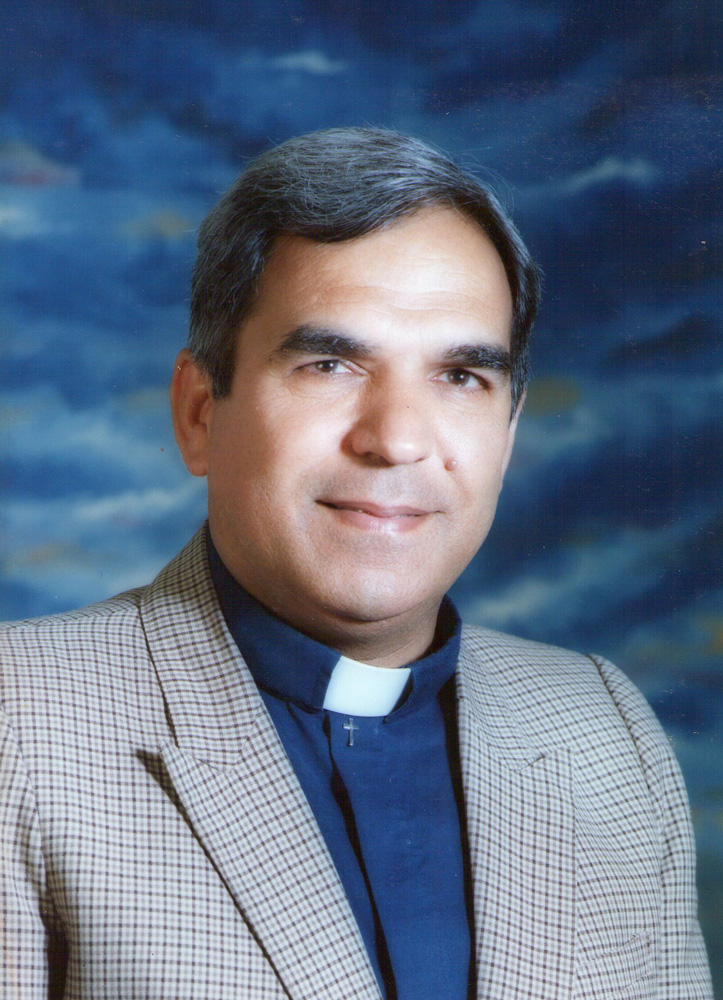
If you had been an Armenian Christian or Jew living on the outskirts of Mashad in the late 1940’s, one of the trials of life would have been the young boys who used to gather near the local well. As you went to draw water, they would throw stones and jeer at you, shouting ‘Unclean! Unclean!’ One of those boys was Hossein Soodmand. He was from a normal family, middle class and fairly religious. His father, though, had left him when he was three, and now he and his two siblings were being brought up by their mother. She poured her life into her children, who adored her, but she also worked as a nurse. So she could not always control Hossein’s boyish antics. Little known to any involved in those scenes at the well, an incident there would mark the seven-year-old Hossein.
Read more..
It was another afternoon of teasing the Christians, but then Hossein made a direct hit. His stone struck and broke a lady’s water bucket. Time to make an escape: the young lad turned and sped off expecting to soon be home. But he tripped over a large stone and fell to the ground. Blood began to flow from his knee. Worse, the Christian woman was steadily advancing towards him. Fear gripped the little boy. There was no escape. He had thrown the stones. He deserved the punishment. Now her shadow was looming over him: soon her hand would rise, and the blows would descend. But they did not. Instead her hand reached down, helped the young Hossein to his feet and the ‘unclean’ Christian cleaned the wound. She then gave the boy some sweets. He had shown hate. She had shown love. And Hossein Soodmand never forgot this. In a few years that seed of forgiveness and kindness sown by that unknown lady would so grow that Hossein from Mashad would become a Christian.
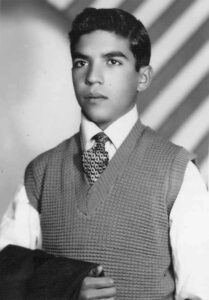 After finishing school, Hossein Soodmand went to Ahvaz for his military service, where he found a church. Why should a Muslim want to go to a Christian church? The answer is found in a letter the martyr Mehdi Dibaj wrote from prison to the family many years later. In 1959 Mehdi Dibaj was serving at that church in Ahvaz and the priest introduced him to the young Soodmand. “I asked him, ‘What made you want to come to the church?’ He said, ‘I got very sick when doing my military service and had to go to the hospital. An Armenian Christian came to see me and when he was leaving, he left me a cross. That night I had a dream of Jesus Christ. He gave me something to eat. I woke up sweating and realised I was better. Then I kept on asking people where to find a church, till I found myself here to worship God.” It was in that church that Hossein Soodmand became a Christian.
After finishing school, Hossein Soodmand went to Ahvaz for his military service, where he found a church. Why should a Muslim want to go to a Christian church? The answer is found in a letter the martyr Mehdi Dibaj wrote from prison to the family many years later. In 1959 Mehdi Dibaj was serving at that church in Ahvaz and the priest introduced him to the young Soodmand. “I asked him, ‘What made you want to come to the church?’ He said, ‘I got very sick when doing my military service and had to go to the hospital. An Armenian Christian came to see me and when he was leaving, he left me a cross. That night I had a dream of Jesus Christ. He gave me something to eat. I woke up sweating and realised I was better. Then I kept on asking people where to find a church, till I found myself here to worship God.” It was in that church that Hossein Soodmand became a Christian.
Hossein Soodmand was now to experience the impact of that word ‘unclean’ in a very brutal way. For when he told his family that he had become a Christian, he was asked to leave. Here he established a crucial principle in his life. He loved his family; but he loved Christ more. He went to Tehran and worked as a street vendor, staying with Christian friends from his days in the army. His concern in these days was not money – it never would be. His absolute priority was God. He would make sure he got to every Bible Study meeting, and spent many hours being discipled by Mehdi Dibaj. Seeing the dedication of Hossein Soodmand, the church leaders in Tehran encouraged him to attend the Bible courses taught in the Garden of Witness (Bagh e Behsarat), a beautiful retreat centre outside the city. The courses were to be taught by the well-known and much-loved American Presbyterian missionary to Iran, Dr. William Miller. Hossein Soodmand soaked in the teaching, was always the top student, and developed a reputation there as an evangelist. After this he became a bookseller for the Bible Society and travelled across Iran selling the Scriptures. In 1970, Hossein Soodmand went to Isfahan and began work in the Christian Institute for the Blind run by the Anglican Church. He really cared for the blind and enjoyed serving them. While serving he fell in love with a blind lady, Mahtab. In 1972 they were married by Rev. Arastoo Sayyah in the Church of Saint Luke, Isfahan.
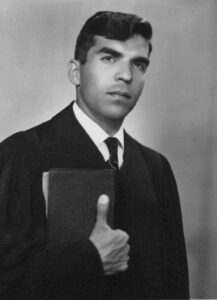 Starting his married life in Isfahan Rev. Soodmand continued to be a fervent evangelist, sharing the Gospel at every opportunity. He kept up a good relationship with the Anglican Church but decided to join the Assemblies of God (AOG) fellowship where Edward Hovsepian-Mehr was the pastor. After a while, he became the assistant pastor. In September 1977, when Edward was sent to the AOG church in Urumieh, Hossein Soodmand became the pastor of the church in Isfahan. With his growing family, (he now had two children), he served the church in Isfahan for three years. In 1980 he moved to Mashad, the city of his birth, to evangelize and plant a church. He went with a burden in his heart, and the blessing of the Council of the AOG Churches in Iran.
Starting his married life in Isfahan Rev. Soodmand continued to be a fervent evangelist, sharing the Gospel at every opportunity. He kept up a good relationship with the Anglican Church but decided to join the Assemblies of God (AOG) fellowship where Edward Hovsepian-Mehr was the pastor. After a while, he became the assistant pastor. In September 1977, when Edward was sent to the AOG church in Urumieh, Hossein Soodmand became the pastor of the church in Isfahan. With his growing family, (he now had two children), he served the church in Isfahan for three years. In 1980 he moved to Mashad, the city of his birth, to evangelize and plant a church. He went with a burden in his heart, and the blessing of the Council of the AOG Churches in Iran.
Hossein Soodmand was very active in Mashad. Though he suffered from varicose veins, he did not stop cycling everywhere to minister. Many believed, and a fellowship was born, with the basement of the Soodmand family’s house becoming home to a small church. Seeing the fruit of his work, the church decided to ordain Hossein Soodmand in 1988. This was when the martyr Haik Hovsepian-Mehr was the bishop of the AOG.
Even as he was being ordained, the storm clouds of persecution were gathering against Rev. Soodmand, his family (he now had four children), and members of his fellowship. The church was forced to close and Rev. Soodmand and other believers were often arrested by the religious police. They suffered psychological and physical torture. Though the church was closed, Rev. Soodmand never stopped working, and would gather his flock privately to teach and encourage them.
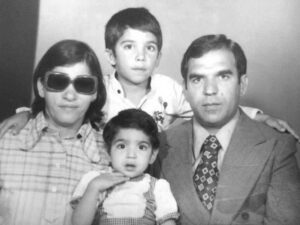 When the religious police saw they were not able to silence Rev. Soodmand, persecution increased. In early 1990 Rev. Soodmand was not just imprisoned but put into solitary confinement and tortured. The Assemblies of God Churches campaigned strongly for his release and after one month Rev. Soodmand was freed.
When the religious police saw they were not able to silence Rev. Soodmand, persecution increased. In early 1990 Rev. Soodmand was not just imprisoned but put into solitary confinement and tortured. The Assemblies of God Churches campaigned strongly for his release and after one month Rev. Soodmand was freed.
Bishop Haik Hovsepian-Mehr now suggested to Rev. Soodmand that he should leave Iran because his case had become so serious. This was Rev.Soodmand’s response:
‘I am a follower of the great shepherd of the sheep, our Lord Jesus Christ, and I am ready to sacrifice my soul for my sheep. For me to escape from this persecution, would cause the hearts of my flock to become cold and weak. And I never want to be a bad example for them, so I am ready to go to prison again and, if necessary, to give my life.’
Rev. Soodmand did not run away. He was not a bad example. He stayed at his post, looking after his flock. And so he was arrested again. After a few days the family were allowed to visit him. They were not allowed to see him again. They had no more news. Two weeks after his arrest Rev. Rubik Hovsepian, the brother of Bishop Haik Hovsepian Mehr, went to the offices of the religious police. He was given this chilling information: Rev. Soodmand, according to the sentence passed by the special religious judge, was executed in Mashad prison on December 3rd, 1990.
The authorities knew when the execution was going to happen, yet they did not allow Rev. Soodmand’s family, his fellow Christians, or his friends, to visit him or receive his will. Persecution continued to follow the family after the martyrdom of Rev. Soodmand. The authorities did not give them permission to bury the body. Instead he was buried by strangers in a part of the Mashad cemetery reserved for those the government call ‘the cursed’. The family were not allowed to put up a headstone, a cross, or even a simple sign with his name. For those who do not know, this is a dusty, unmarked grave. For those who know, though, it is most certainly marked.
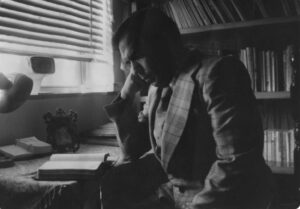 It is marked by the sacrifice of a faithful and true witness to Christ. Rev. Soodmand was utterly committed, and His love for God always came first. In every circumstance of life, Rev. Soodmand never betrayed his Master. He took up his own cross, denied himself, and followed his beloved Lord. For his blind wife, he was a faithful and sensitive husband. He instinctively understood how she was feeling, and with kindness served her needs. He was a very loving father to his children and brought them up to love the Word of God and the Christian life. Such was the impact of his life that all his children, including Rashin, are walking closely with the Lord, and serving His kingdom. Rev. Soodmand had a deep knowledge of the Bible and his teaching built up and shaped his disciples in Mashad. After the martyrdom, Rev. Sepehr pastored the house groups of the church for a while. A good number of Rev. Soodmand’s disciples are now in full-time Christian service.
It is marked by the sacrifice of a faithful and true witness to Christ. Rev. Soodmand was utterly committed, and His love for God always came first. In every circumstance of life, Rev. Soodmand never betrayed his Master. He took up his own cross, denied himself, and followed his beloved Lord. For his blind wife, he was a faithful and sensitive husband. He instinctively understood how she was feeling, and with kindness served her needs. He was a very loving father to his children and brought them up to love the Word of God and the Christian life. Such was the impact of his life that all his children, including Rashin, are walking closely with the Lord, and serving His kingdom. Rev. Soodmand had a deep knowledge of the Bible and his teaching built up and shaped his disciples in Mashad. After the martyrdom, Rev. Sepehr pastored the house groups of the church for a while. A good number of Rev. Soodmand’s disciples are now in full-time Christian service.
The memory of Rev. Soodmand and all the other martyrs of the church in Iran will never be forgotten on earth. Nor will he be forgotten in heaven, where no doubt one of the first saints to welcome him was that dear lady who washed his wound when he was a frightened little boy.
Torch’s Vision
Our vision is to see Persian speakers be transformed, discipled, trained and serving the Kingdom of God
Torch’s mission
Strengthen | Equip | Train
Our Core Values
We are Christians and we live by Christian values.
We are committed to serving God’s kingdom and His people.
We follow God’s call, reaching out to people in various ways for Christ, to see individuals and communities transformed by the power of God.
Statement of Faith
Evangelical Alliance Statement of Faith
We believe
- The one true God who lives eternally in three persons – the Father, the Son and the Holy Spirit.
- The love, grace and sovereignty of God in creating, sustaining, ruling, redeeming and judging the world.
- The divine inspiration and supreme authority of the Old and New Testament Scriptures, which are the written Word of God-fully trustworthy for faith and conduct.
- The dignity of all people, made male and female in God’s image to love, be holy and care for creation, yet corrupted by sin, which incurs divine wrath and judgment.
- The incarnation of God’s eternal Son, the Lord Jesus Christ – born of the Virgin Mary; truly divine and truly human, yet without sin.
- The atoning sacrifice of Christ on the cross: dying in our place, paying the price of sin and defeating evil, so reconciling us with God.
- The bodily resurrection of Christ, the first fruits of our resurrection; his ascension to the Father, and his reign and mediation as the only Saviour of the world.
- The justification of sinners solely by the grace of God through faith in Christ.
- The ministry of God the Holy Spirit, who leads us to repentance, unites us with Christ through new birth, empowers our discipleship and enables our witness.
- The Church, the body of Christ both local and universal, the priesthood of all believers – given life by the Spirit and endowed with the Spirit’s gifts to worship God and proclaim the gospel, promoting justice and love.
- The personal and visible return of Jesus Christ to fulfill the purposes of God, who will raise all people to judgment, bring eternal life to the redeemed and eternal condemnation to the lost, and establish a new heaven and new earth.
The Nicene Creed
I believe in one God, the Father Almighty, Maker of heaven and earth, and of all things visible and invisible. And in one Lord Jesus Christ, the only-begotten Son of God, begotten of the Father before all worlds; God of God, Light of Light, very God of very God; begotten, not made, being of one substance with the Father, by whom all things were made. Who, for us men for our salvation, came down from heaven, and was incarnate by the Holy Spirit of the virgin Mary, and was made man; and was crucified also for us under Pontius Pilate; He suffered and was buried; and the third day He rose again, according to the Scriptures; and ascended into heaven, and sits on the right hand of the Father; and He shall come again, with glory, to judge the quick and the dead; whose kingdom shall have no end. And I believe in the Holy Ghost, the Lord and Giver of Life; who proceeds from the Father [and the Son]; who with the Father and the Son together is worshipped and glorified; who spoke by the prophets. And I believe one holy catholic and apostolic Church. I acknowledge one baptism for the remission of sins; and I look for the resurrection of the dead, and the life of the world to come.
Amen
